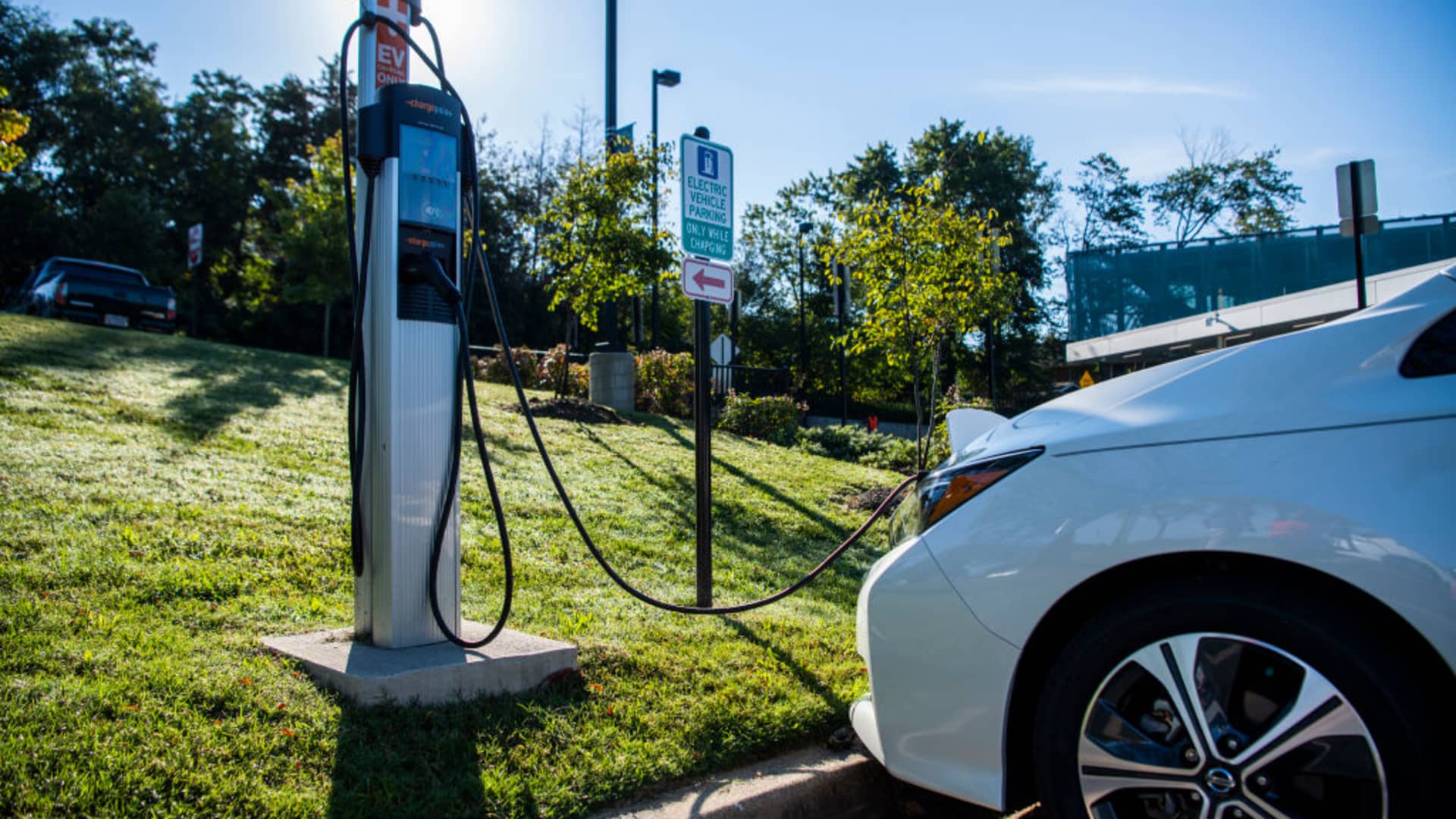Electric vehicle stocks roar back to life in 2023 — Wall Street’s favorite plays from here

Things are looking up for electric vehicle stocks this year. In addition to Tesla ‘s comeback after a dismal 2022, names such as ChargePoint Holdings and Rivian Automotive also have rebounded. The iShares Self-Driving EV and Tech ETF , which lost nearly 38% last year, is up 23% so far in 2023. IDRV YTD mountain iShares Self-Driving EV and Tech ETF is up 23% so far this year Competition is heating up in EVs, thanks to a price war ignited by Tesla . At the start of the year, CEO Elon Musk slashed the price of its new electric vehicles in the U.S. by as much as 20%, although Tesla recently raised prices by 2% to 3% on its Model Y models. Prices also came down in Europe and China. “There’s just a vast number of people that wanted to buy a Tesla car but can’t afford it. And so, these price changes really make a difference for the average consumer,” Musk said on a conference call on Jan. 26 following the automaker’s fourth-quarter earnings report. He also said Tesla has so far seen its strongest-ever orders year date . Shortly after Tesla’s price cuts, Ford fired back by lowering the cost of its Mustang Mach-E . General Motors , so far, is sitting out the price war, such as it is. Rivian is also not cutting prices yet, but recently said it would lay off 6% of its workforce in an effort to conserve cash. Demand for electric vehicles is expected to grow from last year’s 5% of total vehicles sold in the U.S., according to Edmunds. That was nearly double the level from the year before. Goldman Sachs is also bullish about the future of EVs , and the companies involved. “We expect technological innovation, and we see considerable growth through 2030 in the EV ecosystem, and think profit pools in the automobile industry will be transformed,” Goldman analysts wrote in a report last week. With that in mind, CNBC Pro looked for stocks involved in the electric vehicle industry that are well liked by analysts, with a majority rating them a buy, according to FactSet. The average analyst price target calls for at least a 10% gain in the next 12 months, per FactSet. Here is a list of those names: Innoviz Technologies , which makes sensors for autonomous-driving systems, is the most loved by analysts. Some 83% of the six analysts covering the stock rate it a buy. It also has 82% upside to the average analyst price target. The Israeli company, which announced in August it had won a contract to supply sensors and related software to Volkswagen , is up nearly 33% year to date. ChargePoint Holdings is also a big favorite among analysts, with 70% of those covering the stock rating it a buy. The maker of EV-charging stations was named a best idea for 2023 by both Cowen and JPMorgan. While ChargePoint shares lost 50% last year, they are up more than 30% so far in 2023 and has another 70% upside to the average analyst price target. Rivian Automotive has a whopping 90% upside to the average analyst price target. The EV maker is up 8% so far this year after plunging 82% in 2022. Some 54% of analysts covering the stock rate it a buy. When Rivian announced layoffs last week, CEO RJ Scaringe wrote in an email to employees that improving the company’s operating efficiency must be a core objective. Rivian is focusing on ramping up production of its R1 trucks and the delivery vans it builds for Amazon. It is also developing its upcoming, smaller R2 vehicle platform. In addition, General Motors has nearly 15% upside to the average analyst price target, with 54% of analysts covering the Cadillac maker rating it a buy. The Detroit automaker recently beat Wall Street’s expectations for fourth-quarter earnings and revenue . In a letter to investors, CEO Mary Barra described 2023 as a “breakout year” for the company’s EV business. She also confirmed plans to produce 400,000 EVs in North America between 2022 and the first half of next year. One name notably absent from the list is Tesla. While a majority of the analysts covering the stock rate it a buy, the average price target implies 1% downside. — CNBC’s Michael Bloom, Carmen Reinicke and John Rosevear contributed reporting.









